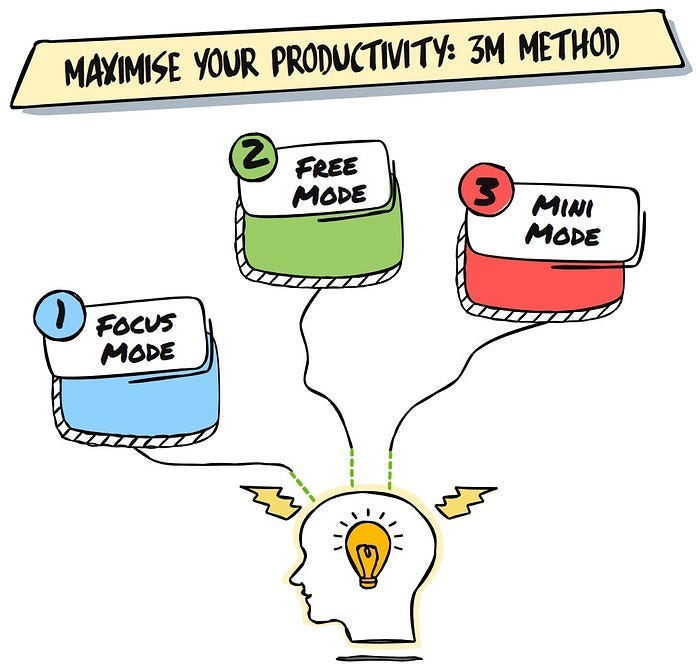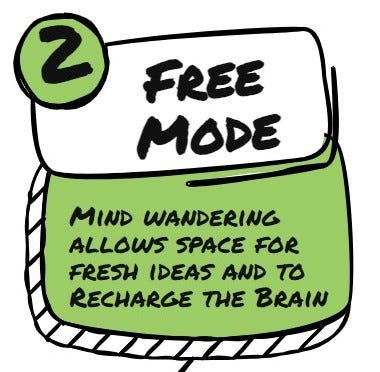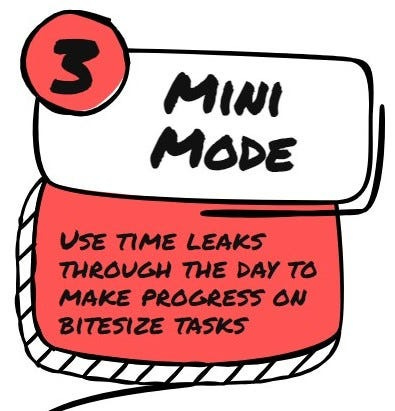I Run a $1.5M Business and Still Write 30K Words a Month — Here’s My Secret
It isn’t discipline. It’s brain science.
Today’s post is by , a 50+ writer on Substack I truly admire. Derek spent years writing on Medium before moving to Substack, and in a short time, he’s built a loyal following with his simple, relatable, and punchy writing.
What I love most is that he had no prior online writing experience. He learned everything by observing, experimenting, and figuring things out the hard way. Along the way, he developed his own writing methods and frameworks. His superpower? Writing irresistible headlines that make you want to click instantly.
Since we’re currently focusing on the ‘writing’ stage of the 90-Day Write Grow Monetize Program, I thought it was the perfect time to learn from Derek’s experince.
I used to tell myself I didn’t have time to write.
Between my 9–5 and running a $1.5M property business, writing felt like a luxury. But I couldn’t shake the urge. So I went hunting for the holy grail of productivity. I devoured 25 books, spent 18 months testing every “hack,” and came out the other side with one clear truth:
Productivity isn’t about more time. It’s about learning to work with your brain, not against it.
That’s how I created the 3M Method and now I write 30,000 words a month while running two businesses and building a $50k writing income on the side.
Here’s how it works.
1. Focus mode
Your brain is a powerhouse when you point it at one thing.
Cal Newport calls this “deep work.” It’s how he doubled his output without evenings and weekends. But here’s the catch: your brain hates it. Mine sure did.
When I first tried it, I set up a web blocker. Within 17 minutes I’d already tried to open Twitter. Not because I wanted Twitter. But because my brain was rebelling against effort.
That’s the sneaky part: distraction isn’t just a bad habit. It’s your brain protecting itself, chasing easy dopamine.
The fix? Treat focus like a muscle.
Start light. Use blockers, rituals, and short sprints. Expect resistance. Train through it.
Because the payoff is huge. Chris Bailey says it takes 27 minutes to recover from a distraction. Imagine how much of your “writing time” isn’t really writing. Eliminate that, and you’ve just doubled your output.
2. Free mode
I discovered this by accident.
One day I’d blocked out an hour to write and produced… nothing. Frustrated, I gave up and went for a run.
By mile two, something magical happened. My brain started dropping ideas into place. Outlines, sentences, metaphors. Stuff I’d been straining for minutes earlier suddenly appeared fully formed.
That’s free mode.
When you let your mind wander — walking, showering, sitting in the garden — it stitches together everything you’ve been consuming.
Here’s what it gives you:
Fresh ideas. Connections you’d never force out at a desk.
Recharge. Focus burns energy; free mode restores it.
Breakthroughs. Those “shower thoughts” aren’t random — they’re your brain filing notes into something new.
Most writers think staring harder at the screen will fix stuckness. It won’t. Go do the washing up. Take a walk. Leave your headphones behind. Then write down what comes.
3. Mini Mode
This one changed my life.
Matthew Dicks, who’s written multiple novels, once told a student: “You were 7 minutes late. No problem. I used those 7 minutes to write three sentences.”
That’s mini mode.
We all get 5–10 minute scraps of time: waiting for a bus, sitting in the car park, kids not out of school yet. Most people waste them scrolling. But those scraps add up.
You can’t draft a masterpiece in 10 minutes, but you can:
brainstorm titles
tidy an intro
outline tomorrow’s article
edit a paragraph
Do three of these a day, and you’ve just boosted your writing time by 50%.
The trick? Keep a mini-mode list ready. Bite-size tasks. Pull one out the moment life hands you a gap.
The 3M Method
Most people think writing success is about discipline.
It’s not.
It’s about using your brain the way it’s wired:
Focus mode for deep, high-quality work.
Free mode for creativity and recharge.
Mini mode for capturing wasted time.
Get those three working together, and you’ll be shocked at how much you can produce.
I don’t write 30,000 words a month because I have more time. I do it because I finally understood how to work with the brain I’ve got.
And so can you.
Want to see how your ideas can start paying the bills? I’m giving you free access to my masterclass: 3 Secrets to Creating a Digital Product. It’s how I made $37,000. And shows you exactly how to turn what’s in your head into income in your bank.
—Derek Hughes
Let me know how you liked this guest post in the comments.
Do you have a question for me or Derek? Ask in the comments section.
If you liked this post, please restack it.
That’s all from me today.
As always, thanks for reading.








Excellent article! I appreciate the tips from two of the most encouraging note writers in my scroll. I love the graphic illustrations. They take this article to another level. Well done, Neera and Derek! 👏👏
Neera, yes, Derek is brilliant! I'm honored to have crossed paths with you both of you and savor using his 3M plan to up my productivity.